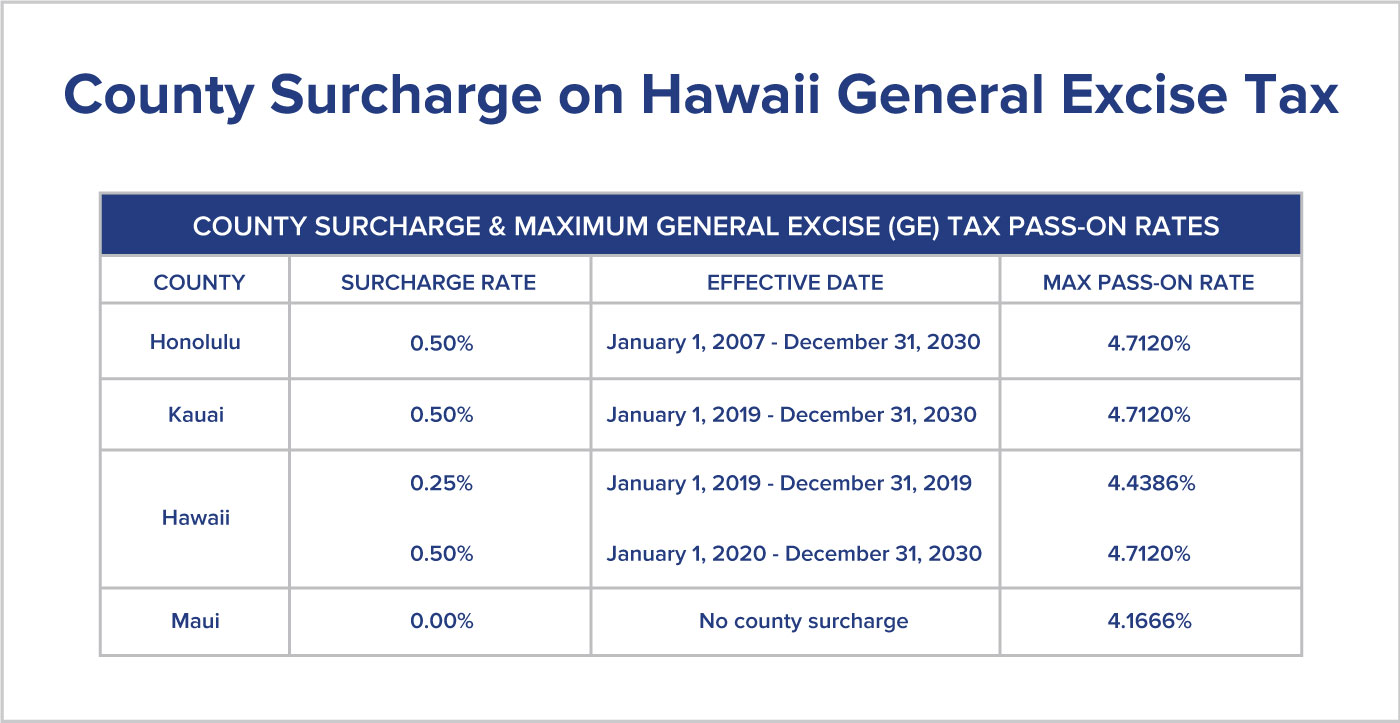

Finance
What Can A Small Business Loan Be Used For?
Modified: December 29, 2023
Find out how small businesses can utilize finance options such as loans to fund various needs, including expansion, equipment purchase, and working capital.
(Many of the links in this article redirect to a specific reviewed product. Your purchase of these products through affiliate links helps to generate commission for LiveWell, at no extra cost. Learn more)
Table of Contents
Introduction
Starting or running a small business often requires a significant amount of financial resources. While many business owners rely on their personal funds, savings, or contributions from friends and family, there may come a time when additional capital is needed to sustain or grow the business. This is where small business loans come into play.
A small business loan is a type of financing provided by banks, credit unions, or online lenders to help small businesses meet their financial needs. These loans can be incredibly versatile, offering entrepreneurs the flexibility to allocate funds where they are most needed.
Understanding what a small business loan can be used for is crucial for entrepreneurs seeking financial support. It enables them to make informed decisions about borrowing and ensures that the loan will be utilized effectively to support the growth and success of the business.
In this article, we will explore various ways in which small business loans can be utilized, ranging from equipment and machinery purchases to unexpected expenses. By understanding these possibilities, small business owners can better harness the power of financing to propel their business forward.
So, let’s dive into the different use cases for small business loans and discover how they can be leveraged to drive growth and stability for your business.
Equipment and Machinery Purchases
One of the most common uses for a small business loan is to fund the purchase of equipment and machinery. Whether you need to upgrade your current equipment or invest in new technology to enhance productivity, a small business loan can provide the necessary funds.
For example, if you own a manufacturing business and need to replace outdated machinery, a small business loan can help cover the cost of purchasing new equipment. This can improve efficiency, increase production capacity, and ultimately lead to higher profits. Similarly, if you run a restaurant and want to update your kitchen equipment to meet changing customer demands, a small business loan can provide the funds needed to make these upgrades.
When considering an equipment or machinery purchase, it is important to factor in the long-term return on investment (ROI). Calculate the potential increase in revenue or cost savings that the new equipment can bring, and compare it to the cost of the loan. If the ROI outweighs the loan cost, it may be a wise financial decision to proceed with the loan.
Additionally, some lenders offer equipment financing options specifically designed to help business owners purchase equipment. These loans often come with favorable terms and lower interest rates, making them an attractive choice for funding equipment purchases.
Overall, a small business loan can be utilized to acquire essential equipment and machinery that can significantly enhance your business operations. It allows you to stay competitive in the market and meet the evolving needs of your customers.
Business Expansion and Renovations
As a small business owner, you may dream of expanding your operations or renovating your existing space to accommodate growth. A small business loan can play a vital role in turning these aspirations into reality.
Expanding your business can encompass various aspects, such as opening a new location, increasing production capacity, or diversifying your product or service offerings. These initiatives often require substantial financial investment that may not be feasible without external funding. A small business loan can provide the necessary capital to finance the expansion, enabling you to reach new markets and attract a larger customer base.
Renovating your business space can also have a significant impact on your success. Whether it is giving your storefront a facelift, upgrading your office infrastructure, or redesigning your restaurant’s interior, renovations can enhance the overall customer experience and improve your brand image. A small business loan can help cover the costs associated with these renovations, allowing you to create a more inviting and modern environment.
When deciding to use a small business loan for expansion or renovations, it is essential to carefully assess the potential return on investment. Consider factors such as the projected increase in revenue, customer satisfaction, and brand loyalty that these expansions or renovations can bring. It is also advisable to have a detailed plan in place to ensure that the loan funds are utilized efficiently and effectively.
By using a small business loan for expansion or renovations, you can position your business for future growth and create a more appealing and accommodating environment for your customers.
Inventory and Supplies
One of the fundamental aspects of running a small business is maintaining an adequate inventory of products or supplies. However, managing and restocking inventory can be a financial challenge, especially for businesses that experience seasonality or have variable demand.
A small business loan can be a valuable tool in managing inventory and ensuring that you have enough stock to meet customer demands. Whether you need to purchase raw materials, restock shelves with merchandise, or invest in additional inventory for upcoming sales promotions, a small business loan can provide the necessary funds.
Having a well-stocked inventory is crucial for maintaining customer satisfaction and fulfilling orders promptly. By utilizing a small business loan for inventory purposes, you can avoid stockouts, minimize backorders, and prevent lost sales opportunities. It also allows you to take advantage of bulk purchasing discounts or negotiate better prices with suppliers, helping to improve your profit margins.
In addition to regular inventory needs, a small business loan can also aid in managing unexpected inventory expenses. For example, if a sudden surge in demand requires you to quickly restock a specific item, or if you need to replace damaged or expired goods, a small business loan can provide the necessary funds to address these situations promptly.
When considering a small business loan for inventory and supplies, it is crucial to maintain a balance between holding enough inventory to meet customer demands and avoiding excess stock that ties up capital. Conduct thorough research and analyze your sales patterns to determine the optimal inventory levels for your business.
By using a small business loan strategically for inventory management, you can ensure that your business operates smoothly, meet customer expectations, and propel growth.
Marketing and Advertising
Marketing and advertising are essential components of any successful business. They help increase brand awareness, attract new customers, and drive sales. However, implementing effective marketing campaigns can be costly, especially for small businesses operating on limited budgets.
A small business loan can be a valuable resource for funding marketing and advertising initiatives. It can provide the necessary funds to invest in various marketing channels such as digital advertising, social media marketing, search engine optimization (SEO), content creation, print media, or even television and radio advertisements.
With a small business loan, you can hire professionals to create compelling marketing content, develop eye-catching visuals, or work with marketing agencies to devise effective strategies. You can also allocate funds to run targeted ad campaigns, sponsor events or community initiatives, or create promotional materials and giveaways.
Funding marketing and advertising efforts through a small business loan can yield significant returns when done strategically. It can help expand your customer base, generate more leads, and ultimately increase sales and revenue. By reaching a wider audience and effectively promoting your products or services, you can set your business apart from competitors and build a strong brand presence.
When considering a small business loan for marketing and advertising, develop a well-defined marketing plan and set clear goals and objectives. Determine the expected return on investment (ROI) of each marketing initiative and compare it to the cost of the loan. This analysis will help you make informed decisions and ensure that the loan funds are utilized efficiently.
By utilizing a small business loan for marketing and advertising purposes, you can amplify your brand’s reach, connect with your target audience, and drive business growth in a competitive market.
Hiring and Training Employees
As your small business grows, you may find yourself in need of additional staff to support operations and deliver excellent customer service. Hiring and training new employees is an investment in the future success of your business, but it can also be a financial burden.
A small business loan can provide the necessary funds to hire and train new employees. Whether you are expanding your team across departments or bringing in specialized talent, a loan can help cover recruitment costs, salaries, onboarding expenses, and training programs.
Having the right employees in place is essential for the long-term growth and success of your business. By utilizing a small business loan to recruit top talent, you can strengthen your team’s capabilities, improve productivity, and enhance customer satisfaction. Skilled and motivated employees can contribute to innovation, provide new perspectives, and help your business stay competitive.
In addition to recruitment, a small business loan can be used to invest in training programs for both new and existing employees. Ongoing training and professional development opportunities can improve employee performance, morale, and job satisfaction. It allows your team members to acquire new skills, stay up-to-date with industry trends, and become more valuable assets to your business.
Before utilizing a small business loan for hiring and training, conduct a thorough analysis of your staffing needs. Evaluate the costs associated with recruitment, including advertising, interviewing, background checks, and any relocation or onboarding expenses. Consider the training needs of your team and identify the most cost-effective options.
With a well-thought-out plan and the assistance of a small business loan, you can build a strong team and create a supportive work environment that fosters growth and success.
Working Capital and Cash Flow Management
Managing working capital and cash flow is crucial for the financial health of any business. However, small businesses often face cash flow challenges due to seasonality, late payments from customers, or unexpected expenses.
A small business loan can provide the necessary working capital to bridge gaps in cash flow and ensure the smooth operation of your business. It can help cover day-to-day expenses such as rent, utilities, payroll, and inventory replenishment during slower periods or when awaiting payment from customers.
By utilizing a small business loan for working capital, you can maintain a stable cash flow and avoid disruptions in your operations. It enables you to meet financial obligations on time and to take advantage of any growth opportunities that arise.
Additionally, a small business loan can also be used to implement cash flow management strategies. For instance, if you foresee a cash flow shortage in the future, you can proactively secure a loan to manage upcoming expenses, rather than scrambling to find immediate solutions.
When considering a small business loan for working capital and cash flow management, it is essential to have a thorough understanding of your business cash flow patterns and projections. Analyze your historical sales and expenses, accounts receivable, and accounts payable to accurately assess your cash flow needs. This analysis will help you determine how much working capital to borrow and for how long.
By strategically using a small business loan for working capital and cash flow management, you can ensure the stability and continued growth of your business, even during challenging times.
Research and Development
Innovation and staying ahead of the competition are essential for the long-term success of any business. Investing in research and development (R&D) can help your small business develop new products or services, improve existing ones, and drive growth.
A small business loan can provide the necessary financial support to fund your R&D initiatives. It can help cover expenses such as research materials, prototype development, testing, and hiring specialized researchers or consultants.
Investing in R&D can have several benefits for your business. It allows you to explore new opportunities, identify market trends, and adapt to changing customer demands. By developing innovative products or services, you can differentiate yourself from competitors and attract new customers.
R&D also plays a crucial role in improving your operations and efficiency. It can help you optimize your processes, reduce costs, and streamline workflows. Additionally, it can lead to advancements in technology, allowing your business to leverage automation, artificial intelligence, or data analytics to drive growth.
Before utilizing a small business loan for R&D, it is important to have a clear understanding of the potential return on investment (ROI). Evaluate the market demand for your proposed innovation, assess the competitive landscape, and estimate the timeframe for commercialization and revenue generation.
Collaboration with universities, research institutions, or industry experts can also facilitate your R&D efforts. Consider using a portion of the loan to establish partnerships or participate in research projects that align with your business objectives.
By leveraging a small business loan for research and development, you can foster innovation, remain competitive, and position your business as a leader in your industry.
Debt Consolidation
Managing multiple debts can be overwhelming and costly, especially for small businesses. If your business has accumulated various high-interest loans or credit card debts, debt consolidation through a small business loan can provide a solution.
A small business loan can be used to consolidate your existing debts into a single loan with a lower interest rate and more manageable repayment terms. By consolidating your debts, you can simplify your financial obligations and potentially reduce your monthly payments.
Debt consolidation can offer several benefits for your business. First, it allows you to save money by securing a loan with a lower interest rate than what you were paying on multiple debts. This can help you pay off the debt faster and save on interest expenses over time.
Second, consolidating debts simplifies your financial management. Instead of juggling multiple payments and due dates, you only have to make one monthly payment towards the consolidated loan. This streamlines your cash flow and makes it easier to track your debt repayment progress.
Before opting for debt consolidation, carefully evaluate your current debts and compare the terms and interest rates offered by different lenders. It’s important to make sure that the consolidation loan’s interest rate and repayment terms are favorable and will truly benefit your business in the long run. Additionally, assess your cash flow and ability to make consistent payments on the consolidated loan.
By utilizing a small business loan for debt consolidation, you can regain control of your finances, reduce interest expenses, and simplify your debt repayment strategy.
Unexpected Expenses
Running a small business often comes with its fair share of surprises and unexpected expenses. Whether it’s equipment breakdowns, facility repairs, legal fees, or emergency situations, these unforeseen costs can put a strain on your finances.
A small business loan can be a valuable safety net for managing unexpected expenses. It provides the necessary funds to address urgent financial needs and handle unforeseen circumstances without disrupting your day-to-day operations or draining your working capital.
Having access to a small business loan gives you the flexibility to quickly respond to unexpected expenses. Instead of scrambling to find alternative sources of funding or compromising other areas of your business, you can borrow the funds needed to handle the situation promptly.
When utilizing a small business loan for unexpected expenses, it is important to assess the urgency and impact of the situation. Determine the immediate financial need and carefully evaluate the repayment terms and interest rates offered by various lenders to ensure that the loan is obtained at the most favorable terms.
It is also advisable to maintain an emergency fund in conjunction with a small business loan. An emergency fund can provide a cushion for smaller unforeseen expenses, while the loan can be reserved for more significant or urgent financial needs.
By having a small business loan at your disposal for unexpected expenses, you can navigate unforeseen circumstances with greater ease and ensure the stability and continuity of your business.
Conclusion
Small business loans can be incredibly valuable tools for entrepreneurs seeking financial support to meet their business needs. The versatility and flexibility of these loans allow small business owners to allocate funds where they are most needed, helping to sustain and grow their businesses.
From purchasing equipment and machinery to expanding operations, managing inventory, investing in marketing, hiring and training employees, and handling unexpected expenses, small business loans offer a wide range of applications.
When considering a small business loan, it is crucial to carefully assess your specific business requirements and create a well-defined plan for utilizing the funds. By evaluating potential return on investment, comparing interest rates, and analyzing cash flow projections, you can ensure that a loan will be utilized efficiently, providing the intended benefits for your business.
It is also important to choose a reputable lender and understand the terms and conditions of the loan agreement. Compare offers from different lenders, considering factors such as interest rates, repayment terms, and any potential fees associated with the loan.
Ultimately, a small business loan can give you the financial resources necessary to navigate challenges, seize opportunities, and drive the growth and success of your business. By harnessing the power of financing and strategically utilizing a small business loan, you can position your business for long-term sustainability, enhance operations, and achieve your business goals.
Remember, managing your business finances wisely and seeking expert advice if needed will ensure that you make informed decisions and set your business on a path to continued success.














